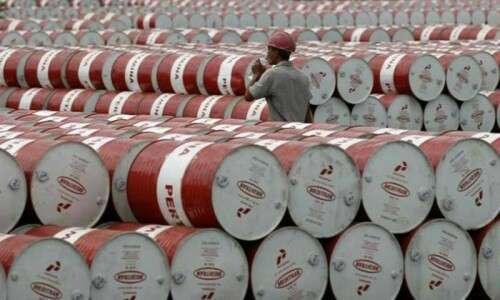Prime Minister Shehbaz Sharif has issued a directive for the safe and swift evacuation of Pakistanis from Syria, following the recent upheaval that has led to the fall of President Bashar al-Assad’s regime. This comes as a response to the growing instability in Syria, marked by the swift rebel offensive that led to Assad’s ousting. The government is focusing on ensuring the safety and well-being of its citizens, making their evacuation a top priority.
Syria’s Political Transition: A Shocking Turn of Events
On Sunday, Syrian President Bashar al-Assad fled Syria after being ousted by rebel forces, ending more than five decades of Assad family rule. The sudden collapse of his government has sent shockwaves through the region and raised fears of a power vacuum that could lead to further instability in the Middle East. The rebel group Hayat Tahrir al-Sham (HTS), which has ties to Al-Qaeda but distanced itself in 2016, has taken control of Damascus and is now in charge of governing the capital.
The fall of Assad marks a dramatic turn in Syria’s long-running civil war, which has killed over 500,000 people and displaced millions. As rebel forces continue to consolidate their control, the situation remains highly volatile, with significant repercussions for regional security.
Pakistan’s Response: A Call for Action
Following these developments, Prime Minister Shehbaz Sharif convened a high-level meeting to discuss the situation and the safe evacuation of Pakistanis stranded in Syria. During the meeting, the prime minister emphasized that the safety of Pakistanis was of utmost importance and directed the authorities to take immediate action to ensure their secure exit from the country.
Instructions to Foreign Office and Pakistani Embassy
The Prime Minister directed the Pakistan Embassy in Damascus to take several steps to facilitate the evacuation process. This includes establishing an information desk and a dedicated helpline to assist Pakistanis in need. Additionally, the Crisis Management Unit (CMU) of the Foreign Office has been activated to provide round-the-clock support and monitor the situation closely. The embassy’s information desk will also remain operational to assist Pakistanis in Syria and neighbouring countries until the security situation stabilizes.
Syria’s Continuing Crisis and the International Community’s Concern
The Syrian conflict, which began in 2011, has torn the country apart. Over the years, millions of people have been forced to flee their homes, creating one of the largest refugee crises in history. As the rebel groups gain ground, the international community is watching closely, hoping for a political transition that could bring an end to the violence.
However, the aftermath of Assad’s departure is uncertain. Rebel factions have yet to present a unified front, and while the fall of the Assad regime has sparked celebrations, there are concerns about the possibility of internal conflict between competing rebel factions. Additionally, the Islamic State (IS) group has not been fully eliminated and may attempt to exploit the chaos to reassert control.
Germany Suspends Syrian Asylum Requests
In light of the ongoing uncertainty, Germany has suspended asylum decisions for Syrian nationals. Interior Minister Nancy Faeser cited the “unclear situation” in Syria as the reason for halting the processing of asylum applications. Germany had previously taken in nearly one million Syrian refugees, and this new decision reflects concerns over the future safety of returning Syrians.
UN Calls for Accountability in Syria’s Political Transition
The United Nations has called for accountability as Syria enters a new phase. Volker Turk, the UN rights chief, stressed that any political transition in Syria must address the crimes committed under Assad’s rule. This includes ensuring that those responsible for human rights violations, such as torture and the use of chemical weapons, are held accountable.
In particular, Turk emphasized the importance of addressing the disappearance of over 100,000 Syrians during the conflict. The UN also expressed concern over the protection of minorities in the country, urging all parties to uphold international law and human rights law.
Rebuilding Syria: A Long Road Ahead
The future of Syria remains uncertain. Although the fall of Assad’s regime provides hope for many Syrians who have suffered under his rule, it also presents significant challenges. The road to peace and reconciliation will be difficult, as Syria’s infrastructure has been decimated by the war. The international community has a crucial role to play in helping to rebuild the country and support a political transition that is inclusive and sustainable.
US and EU Responses to the Syrian Crisis
US President Joe Biden has expressed support for the Syrian people, calling the fall of Assad’s regime “a fundamental act of justice.” He also warned that the United States would remain vigilant against the potential rise of terrorist groups, including the Islamic State (IS). The US has also conducted strikes against IS militants in Syria, aiming to prevent the group from exploiting the power vacuum left by Assad’s departure.
Meanwhile, the European Union has called for an inclusive and peaceful transition in Syria. The EU has urged all parties to respect Syria’s territorial integrity and to engage in dialogue that ensures stability. The EU also emphasized the importance of protecting minorities, including Christians and other religious groups, during this transition.
Syria’s Political Future: Key Concerns and Opportunities
The political transition in Syria presents both opportunities and challenges. As the country moves forward, key questions remain, including:
- Will Syria be able to rebuild its governance structures?
- Can the country ensure the protection of minority groups during the transition?
- How will the international community support Syria’s political transition, and what role will regional powers play?
While the road ahead is fraught with uncertainty, the fall of Assad provides an opportunity for Syrians to reclaim their country and rebuild it based on principles of human rights and justice.
FAQs on the Situation in Syria and Pakistan’s Response
1. What led to the fall of President Bashar al-Assad’s regime in Syria?
The fall of Assad’s regime was due to a surprise offensive by the rebel group Hayat Tahrir al-Sham (HTS), which succeeded in taking control of Damascus and forcing Assad to flee the country. This marks the end of a 50-year Assad family rule in Syria.
2. What steps is the Pakistani government taking to evacuate its citizens from Syria?
The Pakistani government, under Prime Minister Shehbaz Sharif, has ordered the safe evacuation of Pakistani citizens from Syria. The Pakistan Embassy in Damascus has set up an information desk and helplines, while the Crisis Management Unit (CMU) is coordinating the evacuation efforts.
3. What is the current status of Syrian refugees in Europe?
Germany, which took in nearly one million Syrian refugees, has suspended asylum decisions for Syrians due to the unclear situation in Syria following the fall of Assad. The European Union is also monitoring the situation closely.
4. What role does the international community play in Syria’s political transition?
The international community, including the United Nations, the European Union, and the United States, is advocating for an inclusive political transition in Syria. The transition must ensure accountability for war crimes and human rights abuses while safeguarding minorities and upholding international law.
5. What challenges does Syria face in rebuilding after the fall of Assad’s regime?
Syria faces immense challenges in rebuilding its infrastructure, establishing a functioning government, and addressing human rights violations. The country also needs to reconcile various factions and provide security for its citizens.
SEE ALSO:
https://flarenews.pk/2024/12/09/ufone-super-card-premium-discount/



